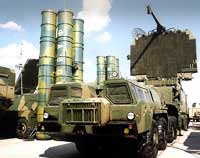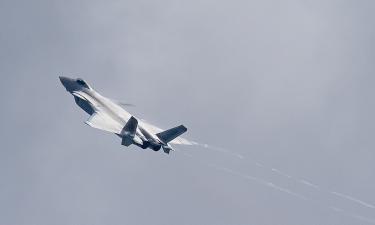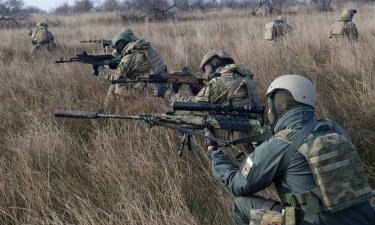Russia's open airspace can become priceless gift to NATO
Russia’s only Aerospace Defense Academy (named after G. Zhukov) is likely to be closed. The closing of the academy which trains air defense and space troops personnel may lead to lamentable consequences for the nation, against the background of other countries’ efforts to strengthen their aviation and missile defense. The events, which took place in Serbia in 1999, can serve a perfect example of what such actions may lead to.

The academy is headquartered in the city of Tver - 150 kilometers far from Moscow. The personnel of the academy has already been introduced to the disestablishment plan from the Defense Ministry. There is no clear reason to explain the decision, aside from the statement about the optimization of the national armed forces, which stipulates the division of the minor units structure and the reduction of educational institutions in the military.
The Aerospace Defense Academy in Tver was founded in 1957 by then-Defense Minister Georgy Zhukov, the person, who has the reputation of the creator of the USSR’s victory in the Great Patriotic War. Zhukov used to say that a country that cannot repel an air strike will have severe problems.
Tank raid become a matter of the past nowadays, when missile technologies develop so speedily. A new term has appeared – a ‘contact-free war.’ NATO opened a new era of military actions when it bombed Yugoslavia in 1999. Land troops did not have to invade the country. A similar situation was observed in Iraq in 1991 and 2003: land troops were virtually finishing those who stayed alive after air strikes.
Such a scenario would be impossible during the Soviet times. NATO strategists unanimously believed that any aggression against the USSR without the use of nuclear arms would have been doomed. The USSR had a unique missile defense system. It had over 150 fighter jets and almost 10,000 missile complexes. The destruction of the nation’s missile defense system began in 1991 when the Soviet Union collapsed.
About two-thirds of the nation’s missile potential found itself deployed in foreign countries when the Soviet Union broke up. The battling capacity of the system was cut six times. The massive joint system was split into several minor systems being able to defend only separate objects.
The history of Serbia shows how exactly NATO may wage a war against Russia. The North Atlantic Alliance has a plan, according to which Russia is supposed to be involved into an armed conflict with one of the countries, which finds itself in the sphere of vital interests of the West. NATO renders assistance to that country sending weapons and specialists there. If it does not help, NATO will have to demonstrate its readiness to take the situation under control.
In this case a regional conflict may grow into a large-scale armed conflict. In addition, the plan says that Russia will not be able to respond by launching its nukes because all or most of them will be already destroyed as a result of massive air strikes. Russia would thus be forced to surrender .
The West already has hypersonic aircraft that can develop the speed of 5,000 km/h. Such an aircraft, launched from a NATO base in the Baltic region, may reach St. Petersburg in only several minutes.
It goes without saying that Russia must have the highly qualified personnel to be able to stand up to such threats. Those being able to accomplish these goals graduate from the Tver Aerospace Defense Academy. Over 300 foreign military men from 21 countries of the world – from Serbia to South Korea - study at the academy at the moment. If the academy is disestablished, a catastrophe will occur. It just so happens that Russia intends to get rid of the base on which its army must stand to be able to resist the threats of the 21st century.
The closing of the academy contradicts to the strategy of President Medvedev and Prime Minister Putin. The strategy particularly highlights the vital importance of air and space security within the structure of the national security on the whole.
It is worthy of note that the USA has been persistently inviting specialists of the Tver Aerospace Academy to cooperate on missile defense system projects since 1997. To crown it all, there is a serious shortage of the missile defense personnel in Russia – the nation only has 7.500 people for thousands of kilometers. It seems that the number has already reached the bottom line and can be reduced no more.
Sergei Balmasov
Subscribe to Pravda.Ru Telegram channel, Facebook, RSS!



